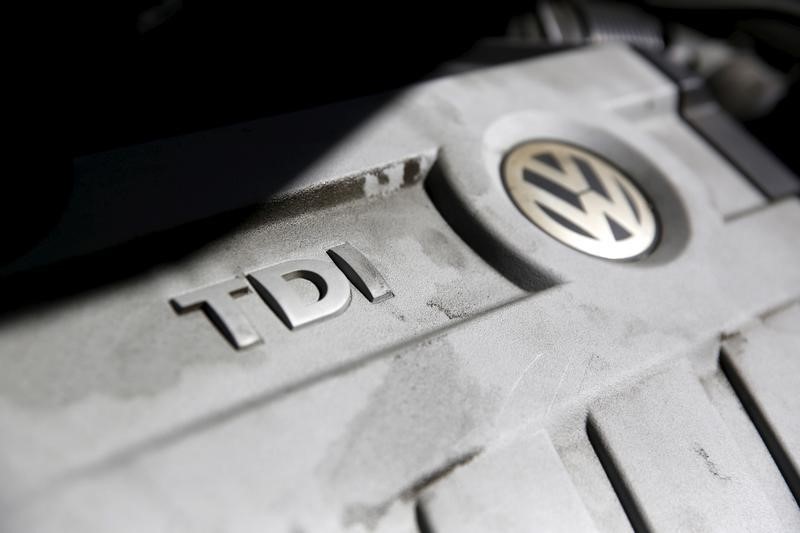Akash Sriram
(Reuters) – Rivian Automotive shares rose about 36% on Wednesday after a $5 billion investment from Volkswagen (ETR:) gave the money-losing startup more firepower to launch new models to attract consumers in a slowing electric vehicle market.
The investment will also bolster Rivian’s (NASDAQ:) dwindling cash reserves, move the startup closer to profitability and help it better compete in a market dominated by Tesla (NASDAQ:).
As part of the deal, Rivian will form a equally controlled joint venture with Volkswagen to share electric vehicle architecture and software that could ultimately be used by the German automaker’s brands, including Audi, Porsche and Lamborghini.
More than 80 million Rivian shares were traded in early trading, more than double its 30-day average trading volume. Stocks are also set to have their best day ever if gains continue. It is also the most popular stock on the retail trading platform Stocktwits.
“This is a big vote of confidence in the prospects of the electric vehicle maker,” said Suzanne Streeter, head of finance and markets at Hargreaves Lansdown.
“Joining forces in this way could also help lower vehicle costs and bolster defenses against the growing power of Chinese electric vehicle manufacturers.”
Lucid (NASDAQ:) shares also rose 3% as Citi analysts said the deal could draw attention to the Saudi Arabia-backed luxury electric vehicle, which is open to licensing its technology and already has ties to British automaker Aston Martin.
However, growing collaboration between electric vehicle makers and legacy automakers could hurt the business of companies like Aptiv (NYSE:), which for years have supplied the auto industry with third-party software and technology.
Aptiv shares fell nearly 10%, and analysts at Piper Sandler said the deal was a “red flag” for the company’s strategy.
Rivian CEO R.J. Scaringe told Reuters that Volkswagen’s investment would also provide the company with the funding it needs to develop the less expensive R2 SUV, a rival to the Tesla Model Y, and the planned R3 crossover.
“This is a fundamental game changer for Rivian and changes the company’s capital structure given the history and the Street’s view at a key moment,” said Wedbush Securities analyst Dan Ives.
The company was expected to add more than $4 billion to its $12 billion market value. Its shares have lost nearly half their value this year after Rivian said in February it had no plans to produce more vehicles in 2024.
However, DA Davidson analyst Michael Schlisky warned that the financing could weigh on Rivian’s share price as it is dilutive.
“We’re not going to spoil it, but this financing is not free because over time there will be a dilutive equity investment of $3 billion, some of which will be at a discount to the current price,” Schlisky said.
Rivian also abandoned previous deals to produce electric vehicles and commercial vans in separate joint ventures with Ford (NYSE:) in 2021 and Mercedes Benz (ETR:) in 2022.


